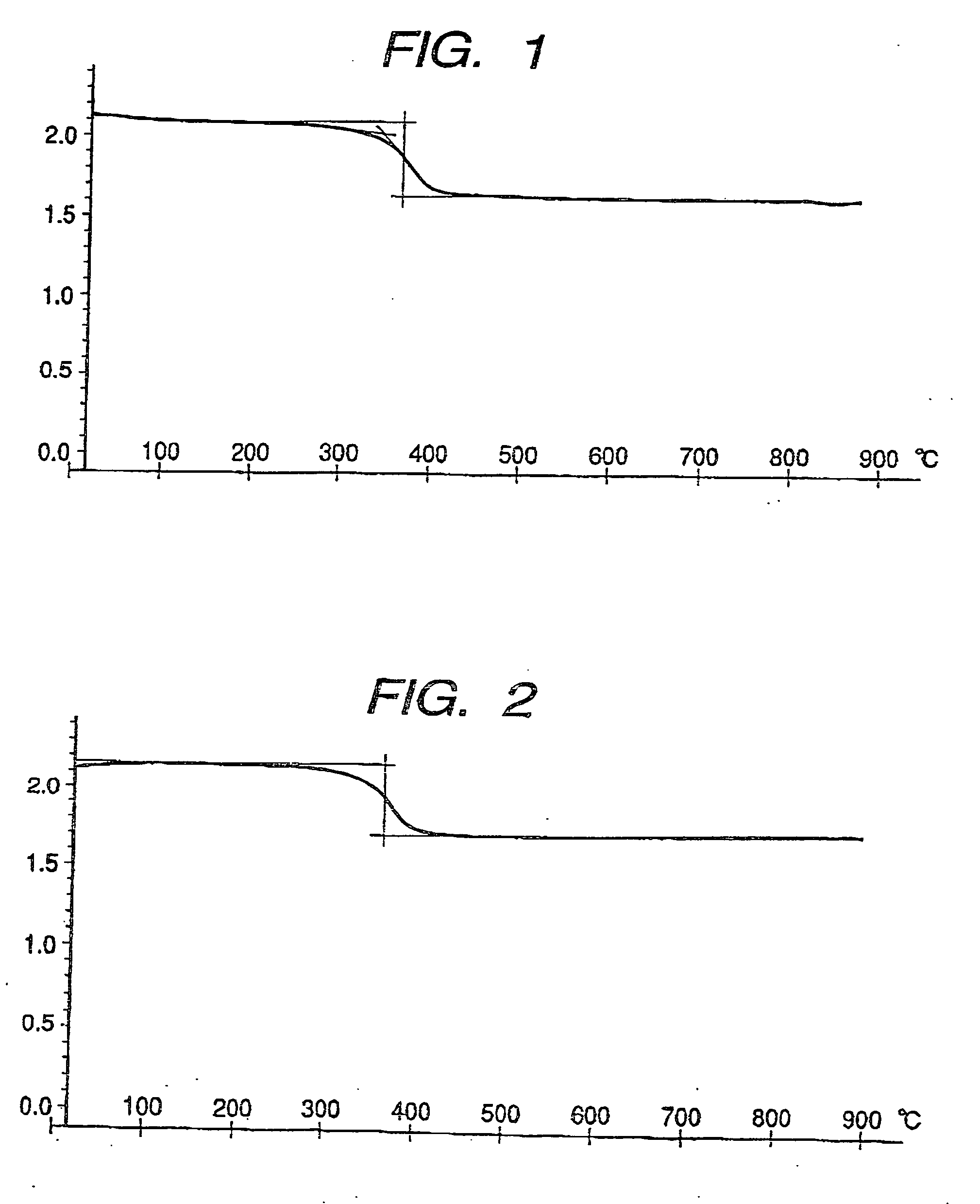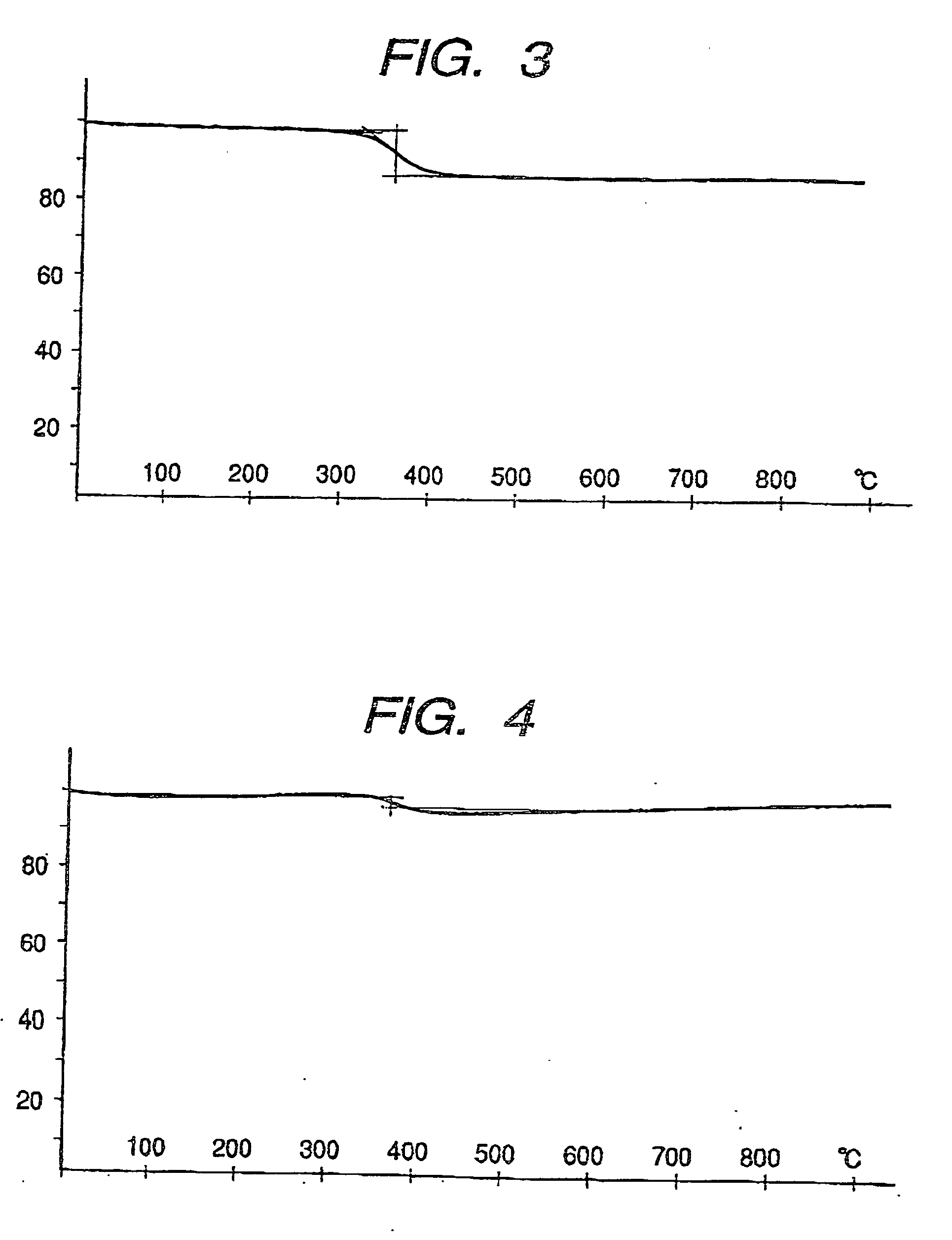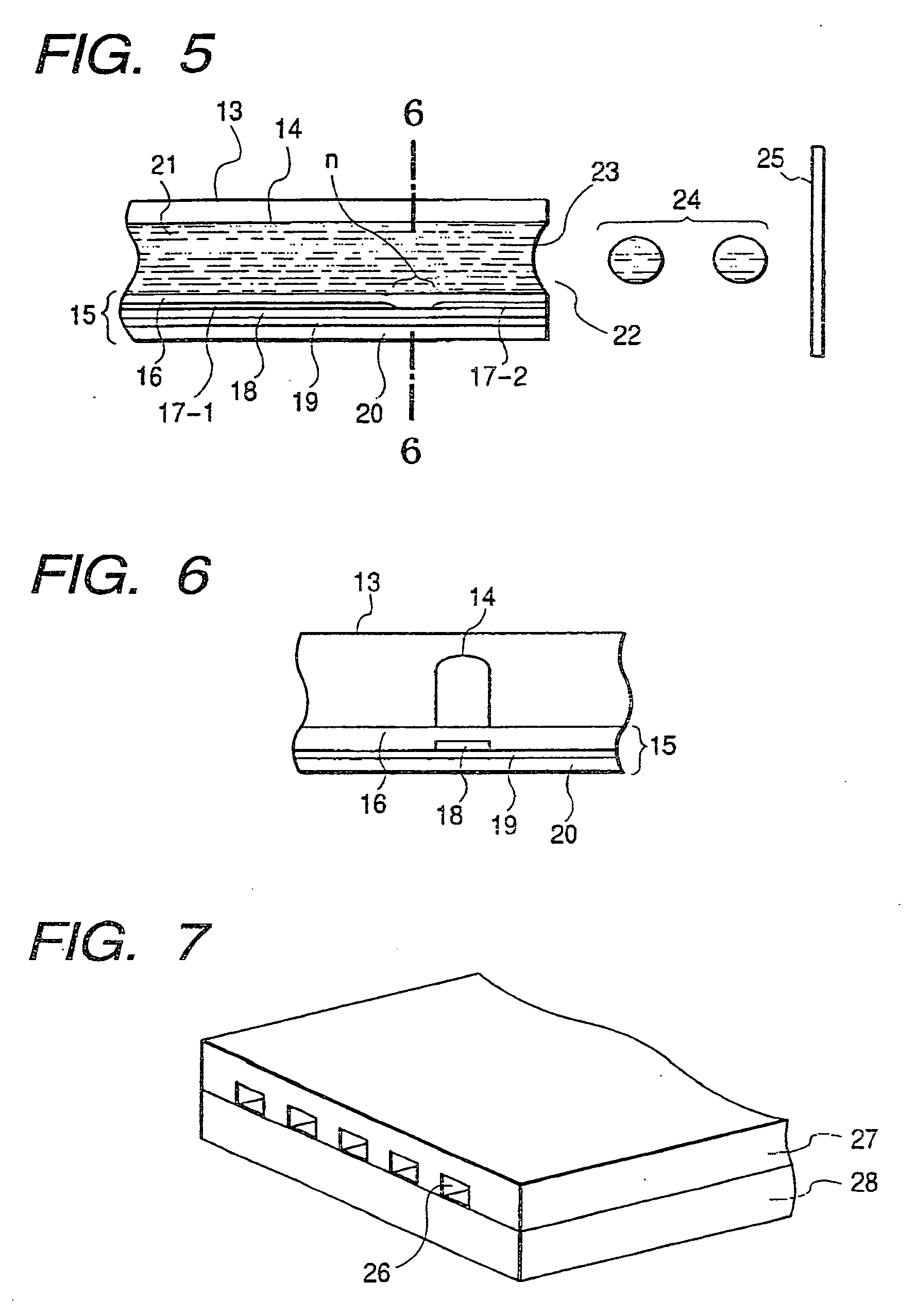Aqueous ink, ink jet recording method, ink cartridge, recording unit, and ink jet recording apparatus
a technology of ink jet and recording method, which is applied in the field of ink jet recording method, ink jet recording apparatus, ink cartridge, etc., can solve the problems of clogging of nozzles, insufficient rubbing resistance of printed images, and above pigment ink jet ink containing resin dispersant for pigment dispersion, etc., to suppress smear, smear resistance, and smear resistan
- Summary
- Abstract
- Description
- Claims
- Application Information
AI Technical Summary
Benefits of technology
Problems solved by technology
Method used
Image
Examples
examples
[0125] Next, the present invention will be described more specifically with reference to Examples and Comparative Examples, but the present invention is not limited to the following Examples as long as the present invention does not deviate from its gist. Hereinafter, “part (s)” and “%” are based on weight unless otherwise stated.
[0126] Into a reactor, 500 g of carbon black whose specific surface area is 220 g / m2 and DBP oil absorption is 112 ml / 100 g, 45 g of aminophenyl (2-sulfoethyl) sulfone (APSES), and 900 g of distilled water were charged, and then stirred for 20 minutes at 300 rpm at 55° C. Then, 40 g of 25% sodium nitrite was added thereto dropwise over 15 minutes, and further, 50 g of distilled water was added thereto. Reaction was carried out for two hours at 60° C. Then, the resultant reaction product was taken out by diluting it with distilled water, and the solid content was adjusted to 15%. Next, the product was subjected to centrifugation and purification for elimina...
examples 1 to 12
[0139] Inks of Examples 1 to 12 were prepared as follows: the components as shown in Tables 2-1 and 2-2 were mixed, sufficiently stirred to dissolve or disperse the components, and then the mixture was subjected to pressure filtration by using a micro filter having a pore size of 3.0 mm (manufactured by Fuji Photo Film Co., Ltd.).
[0140] Tables 2-1 and 2-2 also show Ka values of the inks of Examples 1 to 12 determined by the Bristow method as described below. In addition, the percentage (%) of the bonded organic groups in the inks of Examples 1 to 12 was also recited. The percentage (%) of the bonded organic groups of a modified pigment was determined by using the thermogravimetric analysis described below with two significant digits.
TABLE 2-1Compositions and Properties of Inks of Examples 1 to 6Proportion (wt %)ExampleExampleExampleExampleExampleExampleComponent123456Pigment dispersion 150Pigment dispersion 245Pigment dispersion 340Pigment dispersion 450Pigment dispersion 550Pigm...
examples 13 to 17
[0176] A pigment dispersion 15 was prepared in the same manner as with the pigment dispersion 1 described above, except that a styrene-acrylic resin whose weight average molecular weight was 8,000, acid value 170, and polydispersity (Mw / Mn) 1.7 was used as the copolymer.
[0177] Then, the pigment dispersion 15 and the pigment dispersion 8 were used to prepare inks of Examples 13 to 17 to have the compositions shown in the following Table 5. Table 5 shows Ka value of respective inks of Examples 13 to 17, and the proportion of bonded organic groups in the surface-modified pigment in each ink.
TABLE 5ProportionSubstance1314151617Pigment dispersion 1550505050Pigment dispersion 845Polyoxyethylene cetyl ether0.3(HLB-16.2)Polyoxyethylene octyl ether0.30.3(HLB-15.2)Polyoxyethylene0.3nonylphenyl ether(HLB-16)Polyoxyethylene1oxypropylene oxyethylenetriethylene block copolymer(HLB-15)Glycerin88888Trimethylolpropane55555Diethylene glycol55555Purified water31.731.731.73136.7Ka value0.80.90.80.50...
PUM
| Property | Measurement | Unit |
|---|---|---|
| weight fraction | aaaaa | aaaaa |
| weight fraction | aaaaa | aaaaa |
| weight fraction | aaaaa | aaaaa |
Abstract
Description
Claims
Application Information
 Login to View More
Login to View More - R&D
- Intellectual Property
- Life Sciences
- Materials
- Tech Scout
- Unparalleled Data Quality
- Higher Quality Content
- 60% Fewer Hallucinations
Browse by: Latest US Patents, China's latest patents, Technical Efficacy Thesaurus, Application Domain, Technology Topic, Popular Technical Reports.
© 2025 PatSnap. All rights reserved.Legal|Privacy policy|Modern Slavery Act Transparency Statement|Sitemap|About US| Contact US: help@patsnap.com



